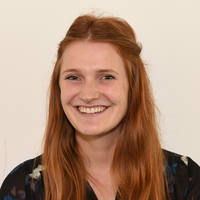Voet Group
Single-cell genomics
Archive Page
This page is maintained as a historical record and is no longer being updated.
This page is now Archived. It is being maintained as a historical record of the research and work of the Voet Group at the Sanger Institute, and is no longer being updated.
We develop methods to determine all classes of genetic variants in the genome of a single cell, as well as the RNA molecules the cell transcribes, to enable the exploration of the genetic differences between cells in a person's body and the relation of this diversity to disease.
The nature and pace of genome mutation in normal and diseased cells is largely unknown. Sequencing the DNA of single cells is a powerful method to study genome mutation in cells, right down to each generation of the cell. It will also enable the dissection and comparison of the genetic content of individual cells in normal organs and diseased tissues, providing insights into how fundamental processes of genome maintenance operate, how these processes may be perturbed in disease, and how somatic mutation may cause disease. Furthermore, single-cell genomics will accelerate our understanding of the genetic diversity that develops in a person's cells over time and its relation to phenotypes and disease development.
Conventional genome-sequencing and transcriptome-sequencing methods require respectively DNA and RNA extracted from a large population of cells. Hence, the genome and transcriptome compositions of individual cells are lost and de novo mutation in cell(s) can be concealed in the bulk signal. Analysis of single cells is essential when dissecting the genomic and transcriptomic makeup of tissues that comprise a population of heterogeneous cells to understand fundamental aspects of genome stability as well as the biology of cellular heterogeneity in health and disease.
Using single-cell DNA or RNA amplification methods sufficient material can be generated to allow sequencing. However, the interpretation of single-cell sequencing data is complicated by various amplification biases introduced in the cell’s DNA or RNA sample and requires dedicated computational approaches to sift these amplification artefacts from true genetic changes.
We develop single-cell sequencing approaches to reliably detect genomic and transcriptomic variation across cells.
In particular we use these methods to study:
- genome instability during gametogenesis and embryogenesis. Genome instability in the embryo not necessarily undermines normal human development, but may lead to a spectrum of conditions, including loss of conception, congenital genetic disorders and (mosaic) genetic variation development.
- the nature and rate of DNA-mutation in different cell types to the per cell cycle level.
- the extent, nature and biology of cellular heterogeneity in health and disease.
Previous core team members

Lauren Deighton
Research Assistant

Andrew J C Russell
PhD Student
Associated research
Related groups
Partners
We work with the following groups
External
University of Leuven (KU Leuven)
External
